 Creepy
Creepy  Creepy
Creepy  Movies and TV
Movies and TV 10 Movies That Get Elite Jobs Right, According to Experts
 Weird Stuff
Weird Stuff 10 Times Real Laws Were Based on Bizarre Hypotheticals
 Animals
Animals 10 Inspiring Tales of Horses Being Human
 Mysteries
Mysteries Top 10 Haunting Facts About the Ghost Ship MV Alta
 History
History 10 Surprising Stories About the Texas Rangers
 Humans
Humans 10 Philosophers Who Were Driven Mad by Their Own Theories
 Miscellaneous
Miscellaneous 10 Video-Game-Worthy Weapons and Armors from History
 Weird Stuff
Weird Stuff 10 Psychics Who Accurately Predicted Wartime Events
 The Arts
The Arts 10 Pieces of Art Inspired by a Broken Heart
 Creepy
Creepy 10 Death Superstitions That Will Give You the Creeps
 Movies and TV
Movies and TV 10 Movies That Get Elite Jobs Right, According to Experts
 Weird Stuff
Weird Stuff 10 Times Real Laws Were Based on Bizarre Hypotheticals
Who's Behind Listverse?

Jamie Frater
Head Editor
Jamie founded Listverse due to an insatiable desire to share fascinating, obscure, and bizarre facts. He has been a guest speaker on numerous national radio and television stations and is a five time published author.
More About Us Animals
Animals 10 Inspiring Tales of Horses Being Human
 Mysteries
Mysteries Top 10 Haunting Facts About the Ghost Ship MV Alta
 History
History 10 Surprising Stories About the Texas Rangers
 Humans
Humans 10 Philosophers Who Were Driven Mad by Their Own Theories
 Miscellaneous
Miscellaneous 10 Video-Game-Worthy Weapons and Armors from History
 Weird Stuff
Weird Stuff 10 Psychics Who Accurately Predicted Wartime Events
 The Arts
The Arts 10 Pieces of Art Inspired by a Broken Heart
Top 10 Reasons 2020 Was A Dumpster Fire
Every year has something that makes it terrible for a large group of people, but it seems that 2020 wanted to up the game by making everyone’s lives miserable from beginning to end.
This year has been, in a word, difficult. A worldwide pandemic, wildfires, contested elections, and just about everything that could have gone wrong did go wrong, making 2020 one of the worst years of all our lives.
This list highlights ten of the things that made this year one everyone should forget. More bad things happened, but for a large population of folks, these ten things were more than enough.
Except for #10, these aren’t presented in any particular order because they all suck.
Top 10 Striking Images That Show Covid-19’s Impact On The World
10 Coronavirus
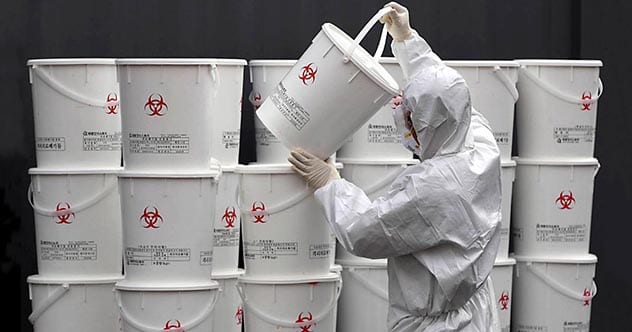
Getting the most obvious out of the way, COVID-19 arose in 2019. The virus spent the following year traveling around the globe, infecting millions of people. Shortly after it was identified, it became clear that the novel coronavirus originating in Wuhan, China was far more dangerous than the annual flu, and it wasn’t long before it exploded into a worldwide pandemic.
Pandemics aren’t as uncommon as most people think, but they tend to be locked into a regional area. The Ebola outbreak that arose in 2014 was terrible, but its spread was far less pervasive. Most pandemics come and go without taking down the entire planet, but COVID-19 managed to do something that hadn’t been seen since the 1918 Spanish Flu.
That virus infected some 500 million people across the world, leading to 50 million deaths.[1] Fortunately, COVID-19 isn’t as deadly, but by December, more than 67 million people had been infected, resulting in more than 1.5 million deaths.
COVID-19 didn’t just infect and kill people; it changed the way we live our lives. Businesses were restructured to have their employees work from home. Others shut down entirely without making up lost revenue, and many lost their jobs. COVID-19 won’t disappear on January 1st, but with any luck, it won’t dominate the planet like it did in 2020.[2]
9 The 2020 U.S. Presidential Election
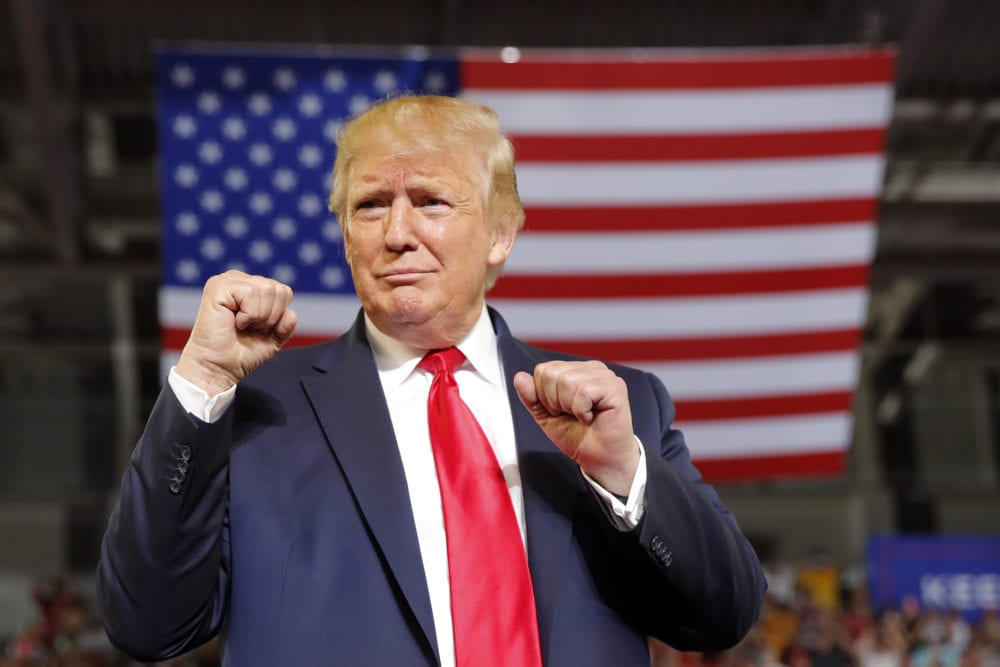
Because the United States is such an influential and wealthy nation, the whole world tends to sit up and notice what’s going on when a Presidential election rears its ugly head. Elections in the States tend to be somewhat chaotic, and they begin long before anyone has an opportunity to cast a vote.
The 2020 Presidential election was problematic before it ever occurred. President Trump and his allies spoke out against mail-in ballots, which they said would be used to “steal the election” and make a mess of things. This went on for months, and when the election finally came, Trump lost, and Joe Biden won.[3]
Unfortunately, that wasn’t entirely clear to everyone, up to and including President Trump. He declared victory on the evening of the vote despite the fact that millions of ballots had yet to be counted. Over the course of the week, he launched lawsuits, challenging the results, and by December, little had changed.[4]
At this point, the nation and its people are exhausted by Presidential politics. Most elections come and go, and the citizens of the United States are typically happy to see them come to an end. Still, the 2020 Presidential election continues and will likely continue until Joe Biden is inaugurated on January 20th, 2021.
8 The Unexpected Deaths Of Many Celebrated People
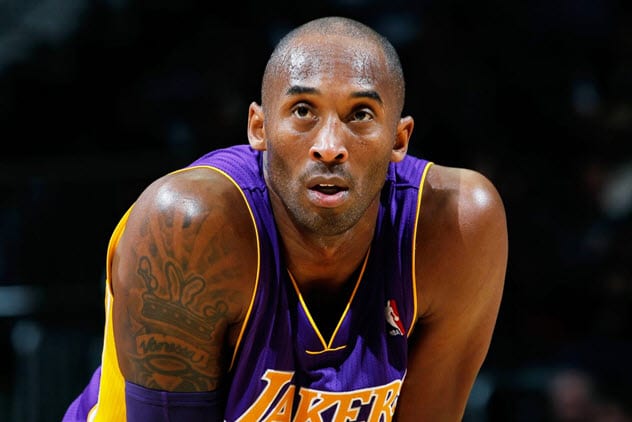
Celebrities die every year, and like any death, it’s always sad and often unexpected. Each year, we look back and see that someone who meant something to us has passed away. It’s something that happens, and people learn to deal with the loss for the most part.
That being said, 2020 hit the world with several unexpected deaths of celebrities that came out of nowhere. Granted, COVID-19 killed a lot of people, but the unexpected deaths that hit the hardest were the ones that had nothing to do with the virus, making 2020 another crappy year that took away the people we collectively celebrate.
Kobe Bryant died alongside his 13-year-old daughter and seven others when his helicopter crashed in Calabasas, California in January, and that was just the beginning.[5] Chadwick Boseman died at 43 from colon cancer, which seemed to come out of nowhere.
Other notable celebrities we lost this year include Alex Trebek, King Von, Eddie Van Halen, Ruth Bader Ginsburg, Little Richard, Sean Connery, John Lewis, Regis Philbin, Naya Rivera, Grant Imahara, Kelly Preston, Ian Holm, Nikita Pearl Waligwa, and many more.[6]
7 China’s Crackdown On Hong Kong
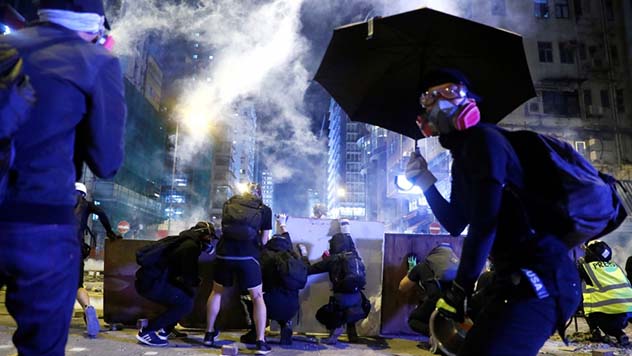
In 1997, Hong Kong was transferred from British control to the People’s Republic of China, which adopted a “one country, two systems” policy regarding its governance. For 99 years under British rule, Hong Kong enjoyed its own economic and administrative systems. China promised that this would continue once the country took over.[7]
China’s influence over Hong Kong’s governance began almost immediately. In the 23 years since the PRC took over, Chinese loyalists have taken up positions of power in Hong Kong’s government. This helped bridge the gap between Chinese socialism and Hong Kong democracy such that in 2020, It started to look like the “one country, two systems” policy was out.
In April 2019, Hong Kong proposed an extradition bill, which was pushed by PRC loyalists. The bill would make it easy for China to extradite people from Hong Kong it deemed suspicious. Thus began the 2019-2020 Hong Kong protest movement, which ultimately saw a further degradation of Hong Kong’s limited sovereignty.
In mid-2020, China further eroded Hong Kong’s limited government by directly legislating actions, making it easier to completely take over. Protests erupted across Hong Kong, and many nations saw the “one China, two systems” policy erode into little more than “one China,” and a longstanding democracy crumbled.[8]
6 Renewed Fighting In Nagorno-Karabakh
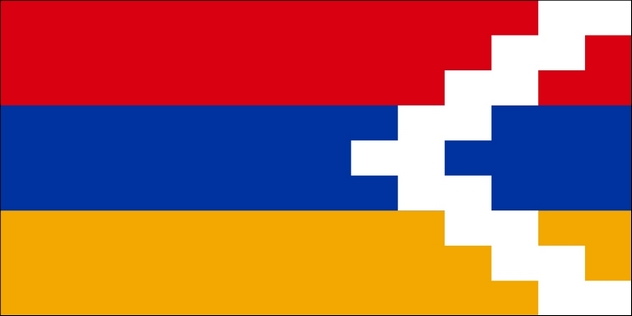
Before 2020, most people in the west had likely never heard of Nagorno-Karabakh, and because of COVID, that remains mostly true. Regardless, Nagorno-Karabakh was brought into the news when fighting broke out in the latest conflict to plague the contested territory.
Nagorno-Karabakh is internationally recognized as part of Azerbaijan, but it is primarily governed by the unrecognized Republic of Artsakh. Representatives of Armenia and Azerbaijan have been participating in peace talks regarding the region’s disputed status since 1992, but every once in a while, the conflict heats up.
On September 27th, clashes once more broke out between Azerbaijan and Armenia’s armed forces over the territory, resulting in the outbreak of war between the two nations. Armenia and Artsakh instituted martial law in the region, and the conflict escalated to involve Turkey, which provided military support to Azerbaijan.
The outbreak of war in Nagorno-Karabakh threatened the entire region, and Turkey’s involvement brought a NATO nation into the conflict. Fortunately, things quieted down after six weeks, thanks to a Moscow-brokered ceasefire. Unfortunately, the matter remains unsettled. Thanks to the capture and transfer of territory within Nagorno-Karabakh, fighting is likely to eventually resume.[9]
Top 10 Funny Coronavirus Lockdown Activities Around The World
5 Thai Prime Minister Refused To Step Down
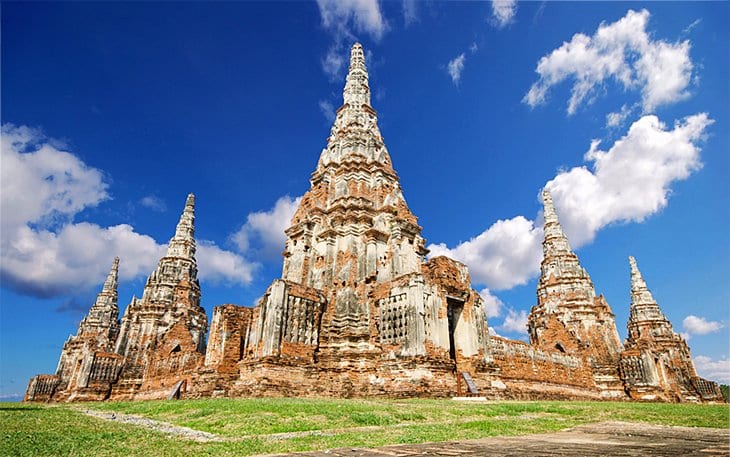
The government in Thailand has been in turmoil since 2016 when King Bhumibol Adulyadej passed away after 70 years of rule. His successor, King Maha Vajiralongkorn, lives in Germany, and for the first time in generations, the people of Thailand are criticizing their monarch.
A law in the country hands out a prison sentence of between three and 15 years for defaming the King, the Queen, the heir-apparent, or the regent, but that isn’t stopping the people from taking to the streets. To make matters worse, the current Prime Minister, Prayuth Chan-Ocha, rose to power via a bloodless coup, and after the election in 2019, the people began demanding he step down.
The Asian Network for Free Elections criticized the election, as have the people who demanded his resignation. By October, things escalated. The Queen’s motorcade was allegedly harassed by protesters, which led the PM to declare a state of emergency, banning gatherings.[10]
Protesters reacted with more protests, and the gatherings have continued to demand the PM resign. Rumors of an attempted coup or military intervention have been spreading while demands for a new government, new constitution, and a reformation of the monarchy run rampant in the streets.[11]
4 Belarus’ Election Sparked Massive Protests
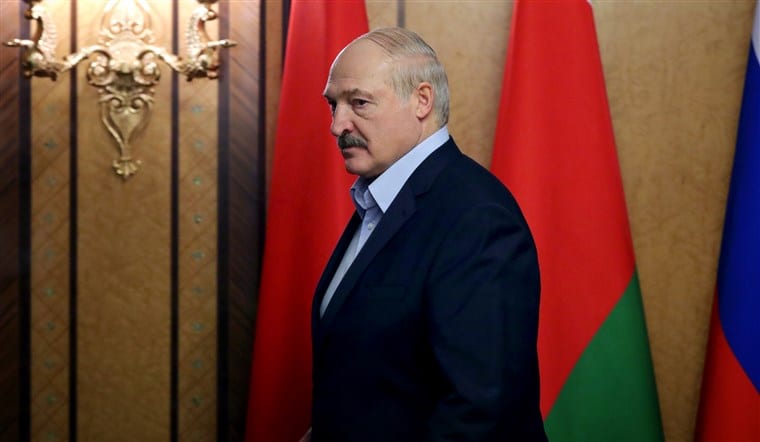
On August 9th, Belarus held a presidential election, which saw the incumbent leader, Alexander Lukashenko, retain his position for a sixth term. The election results saw 80% of the vote go for the President, but the results were immediately contested.
Opposition candidate Sviatlana Tsikhanouskaya claimed she won with a decisive victory of 60-70% of the vote, which led her campaign to call for negotiations to resolve the matter through a peaceful transition of power. That didn’t happen, and every member of the council she created for that purpose was arrested or has gone into exile.
Accusations of widespread election fraud have led to protests across the nation, and several other countries have refused to accept the results. The European Union imposed sanctions on Belarusian officials it deemed responsible for “violence, repression, and election fraud.”[12]
Lukashenko ordered the police to crack down on protesters, and violence erupted across the nation. As of December, the election’s results remain contested, and protests continue as the United Nations called for an end to ongoing human rights violations in the country.
“In the last month, hundreds of people continued to be arrested each week during the demonstrations — with reportedly around 1,000 people on November 8th and 700 on November 15th….Senior citizens have reportedly also been arrested during the pensioners’ peaceful weekly marches.”[13]
3 Increased Tensions Between Iran And The United States
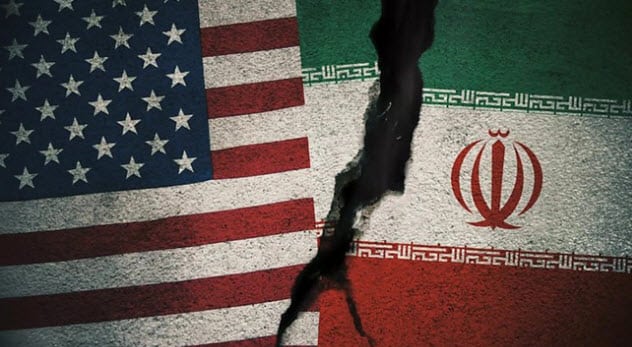
Shortly after President Donald Trump took office, he pulled the United States out of the Iran Nuclear Deal. Subsequently, he hit Iran with sanctions to weaken the nation, and tensions began to degrade. By 2020, things were looking to reach a boiling point, and rumors of Trump’s interest in attacking Iran began making the rounds.
Hostilities between the two nations escalated when Trump authorized the killing of Iran’s Islamic Revolutionary Guards Corps commander Qassem Soleimani. The killing of the commander of the Quds Force all but sent the two nations to war, and shortly after the killing, Iran fired missiles at American bases in Iraq, wounding several American Soldiers.
As tensions continued to rise, Iran “unintentionally” shot down a Ukrainian jetliner, killing 176 people.[14] It seemed as if the two nations would engage in an all-out shooting-war, but Trump responded diplomatically with more sanctions, ultimately cooling tensions for the time being.[15]
If a full-blown war were to break out between the U.S. and Iran, its impact would be felt worldwide. Iran sits on the Strait of Hormuz, which is the gateway for oil exports from the Persian Gulf. Any conflict would threaten commerce worldwide, which would impact everything from agriculture and transportation to medicine and vaccine distribution.
2 The Australian Brushfires
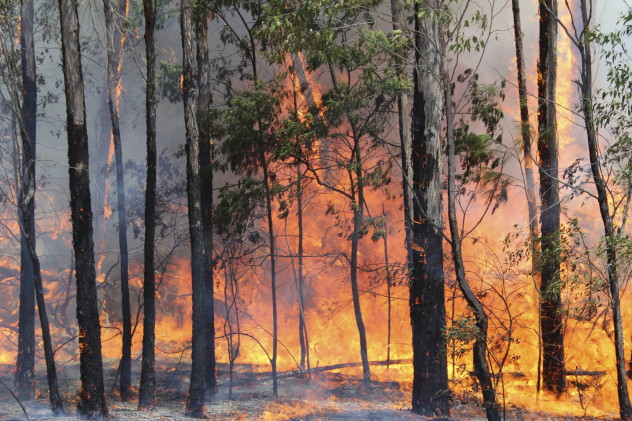
It may seem like it happened eons ago, but the year began with the 2019-2020 Australian brushfire season, and it was intense. The fires started in June 2019 and carried on until May 2020, but because of COVID-19, a worldwide concern became something of an afterthought despite being one of the worst wildfire seasons ever recorded.
The fires burned tens of millions of acres, which caused entire cities to evacuate. Thirty-four people were killed as a result of the fires, and while any human death is a tragedy, various ecosystems across Australia were so severely damaged, some may never recover.
Several species that were already threatened may have been driven to extinction, while other species that were ‘of concern’ have been moved closer to being completely destroyed. It has been estimated that as many as three billion animals were killed or displaced by the fires.[16]
Up to one-third of the koala population was killed by the fires. Between 5,000 and 10,000 individuals died, and conservationists want the species declared endangered on an emergency basis.[17] The damage caused by the 2019-2020 Australian brushfire season was widespread, and its effects are still being measured.
1 George Floyd’s Death
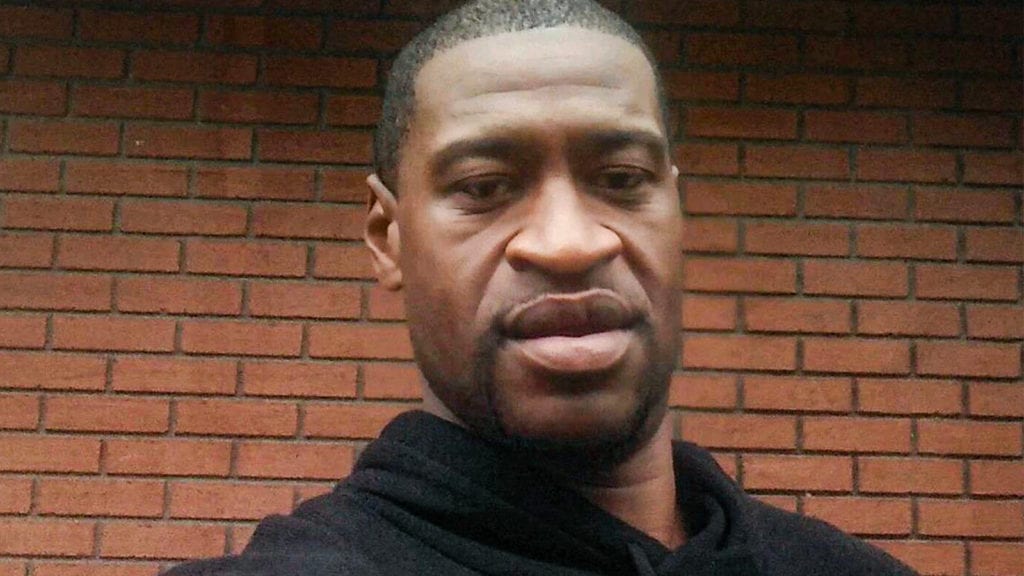
Gorge Floyd was an African-American man who was killed by former police officer Derek Chauvin, who knelt on his neck for eight minutes and 46 seconds.[18]
As a result, Floyd died, and the whole thing was caught on video. African-Americans who were already angry about the widespread violence and police brutality many in their community have suffered under the boots of police oppression took to the streets in protest.
They weren’t alone, as people from all walks of life came out to protest police violence, as they demanded that Black Lives Matter.
Floyd’s murder was the tipping point that pushed hundreds of thousands to take to the streets, and it didn’t go well. Many police responses came down on protesters with more violence brought by rubber bullets, tear gas, and beatings.
The BLM movement may have begun in the United States years before Floyd’s death, but it wasn’t long before people across the world took to the streets to protest similar forms of oppressive violence. Statues were pulled down, people got hurt, and while the movement may have brought the problem to more people’s attention, it has yet to result in widespread reform.[19]
Top 10 Ways Coronavirus Will Change Your Life Forever








